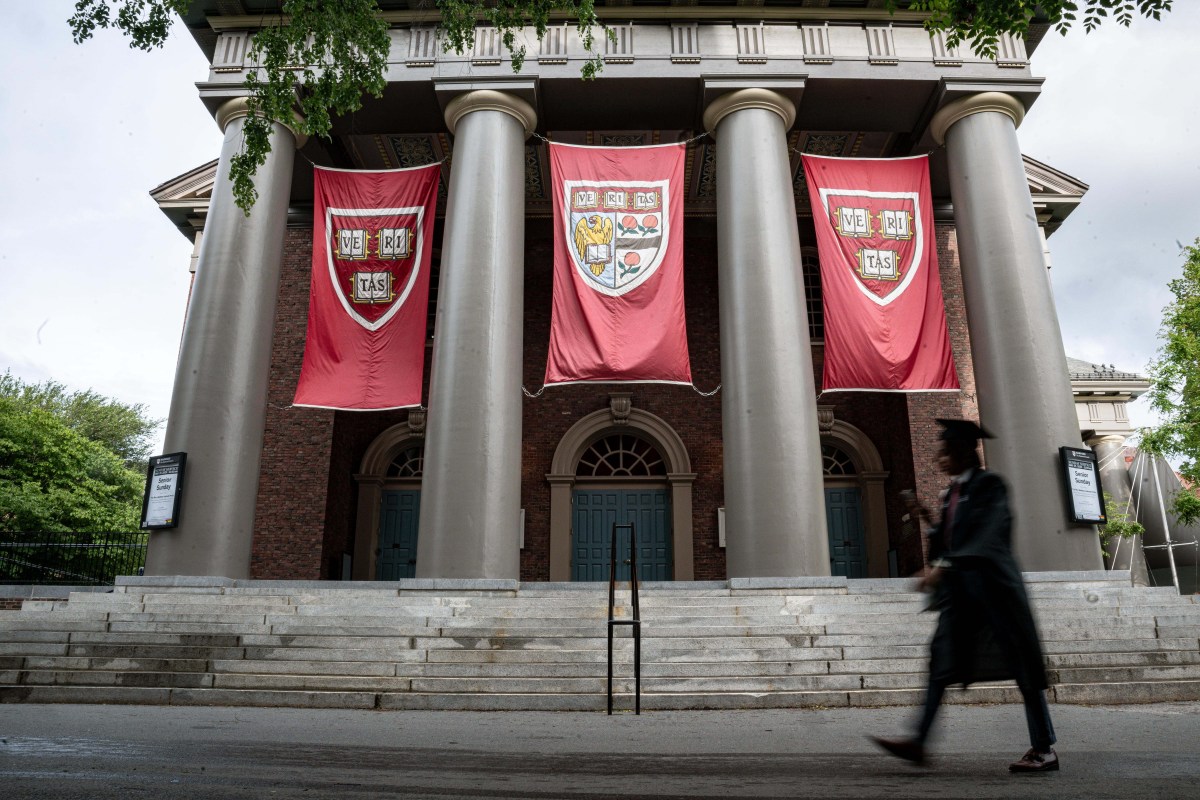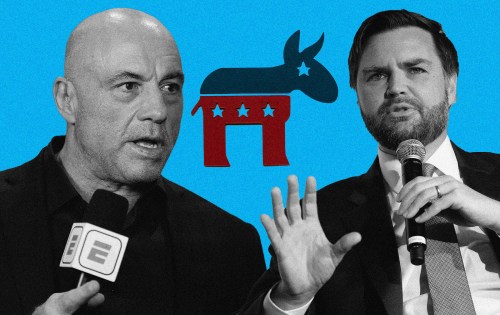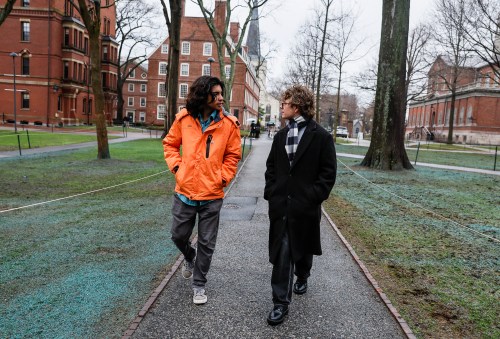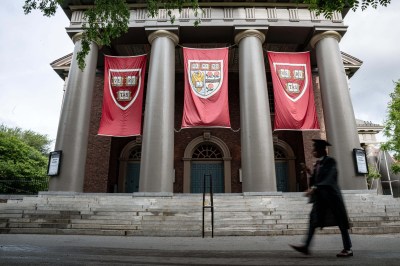Happy Wednesday! In a fun Canadian Parliament tradition (not a description we often give), lawmakers physically drag the new speaker of the House of Commons to the front of the chamber on his first day. Our summer interns start in two weeks; we’ll keep this in mind.
Quick Hits: Today’s Top Stories
- Russian forces captured four Ukrainian villages in the northeastern Sumy region near the border between the two countries on Tuesday. Russian President Vladimir Putin called for his military to establish a “buffer zone” in the region, and the Russian Defense Ministry had announced its intent to create a “security strip” in Sumy. Russia had launched a massive drone and missile attack over the past several days, but the bombardment subsided on Tuesday. Meanwhile, U.S. President Donald Trump is considering imposing sanctions on Russia and said on Tuesday that Putin is “playing with fire” in continuing to refuse to participate in ceasefire talks with Ukraine. Despite the verbal warnings, Russia’s foreign minister said on Tuesday that Trump and Putin have agreed to a prisoner exchange between the two countries—though the State Department had yet to confirm any details as of early Wednesday morning.
- The Trump administration is planning to cancel all remaining federal contracts with Harvard University due to alleged antisemitism and discrimination on campus, according to a letter sent to federal agencies on Tuesday. According to the Wall Street Journal, the cancellation would affect 30 contracts valued at $100 million. The Government Services Agency (GSA), which sent the letter, instructed agencies to “seek alternative vendors” and send a list of contract cancellations by June 6, with critical contracts being transferred to other vendors to complete the work. The Trump administration had already attempted to halt the university’s ability to enroll international students (a judge temporarily paused the effort last week) and threatened to redirect grant money toward trade schools across the country.
- The Trump administration on Tuesday ordered U.S. embassies and consular sections to pause new student visa interviews as it prepares to expand social media vetting for international students. The memo, signed by Secretary of State Marco Rubio, does not specify what the vetting would entail, but it does reference executive orders about preventing terrorism and antisemitism. Earlier in Trump’s term, the administration revoked nearly 2,000 international students’ ability to study in the U.S.
- Palestinians in Gaza stormed an aid distribution center on Tuesday after a gate there collapsed due to pressure from the gathering crowd, forcing staff to retreat and prompting Israeli soldiers to fire warning shots above the crowd. A group called the Gaza Humanitarian Foundation, a private company backed by the U.S. and Israel, is overseeing aid distribution. The chief executive of the group resigned on Monday, but two of the four planned aid centers are currently operating, according to the Israeli military. The group did say that it was able to distribute nearly 500,000 meals through the site on Tuesday.
- German Foreign Minister Johann Wadephul threatened unspecified intervention against Israel on Tuesday over the war in Gaza, a sign of Europe’s continued shift away from Israel. The statement comes after German Chancellor Friedrich Merz said on Monday that Israel’s actions in Gaza can “no longer be justified,” and the U.K., Canada, and France threatened “concrete actions” against Israel on Monday if aid restrictions are not lifted and the war in Gaza continues. The U.K. also suspended trade negotiations with Israel, and European countries—led by France—are considering officially recognizing Palestine as a state. Trump has also tempered his support of Israel in recent days, saying on Sunday that he is working to end the war in Gaza as quickly as possible.
- NPR and three Colorado public radio stations filed a lawsuit against the White House on Tuesday related to Trump’s executive order ending the use of federal funds for NPR and PBS. The order, signed in early May, ended federal funding of NPR and PBS because “neither entity presents a fair, accurate, or unbiased portrayal of current events.” The lawsuit alleges that the order violates First Amendment protections of the press and free speech and oversteps executive authority.
- The Centers for Disease Control and Prevention on Tuesday ended its recommendation that healthy children and pregnant women should receive routine COVID-19 vaccine shots. Health and Human Services Secretary Robert F. Kennedy Jr. announced the change in a video posted to X, standing with National Institutes of Health Director Jay Bhattacharya and Food and Drug Administration Commissioner Marty Makary. “We are now one step closer to realizing @POTUS’s promise to Make America Healthy Again,” Kennedy said in the video. He also criticized the Biden administration’s recommendation of COVID-19 shots despite what Kennedy called the “lack of any critical data” to support repeated booster vaccination. The CDC previously recommended that everyone older than 6 months receive the latest vaccine, but according to its own data, just 23 percent of U.S. adults and 13 percent of Americans under the age of 18 had done so.
- British police officials said Tuesday they arrested a man for attempted murder after he allegedly rammed his car into a crowd in Liverpool, England, one day earlier, injuring 65 people—including four children. The suspect reportedly followed an ambulance to get around barriers blocking off a parade celebrating Liverpool F.C.’s title in Premier League soccer. Although authorities are continuing their investigation, the incident is not being treated as terrorism, with police saying that the suspect, 53, was likely on drugs.
School’s Out For … TBD

When we began working on today’s newsletter, we initially intended to write a report on the White House’s efforts last week to revoke Harvard University’s certification, under the Student Exchange and Visitor Program (SEVP), to enroll international students, along with its cancellation of the last remaining federal contracts with the university. The move threw into question the status of not only future applicants, but also foreign students who were currently enrolled and had left the country for vacation or business. The university swiftly challenged the White House in court, and a judge granted a temporary injunction hours later.
But then on Tuesday afternoon, the legal landscape for all international students, not just Harvard’s, became significantly more complicated. A State Department cable signed by Secretary of State Marco Rubio, first reported by Politico, directed all U.S. embassies and consulates to pause scheduling student visa interviews for new students. The directive said that the pause would last “until further guidance” is available in the coming days.
The revocation of SEVP certification and the pause in visa interviews are pieces of a larger legal struggle between Harvard and the White House as the university seeks to fight back against what it claims are violations of its constitutional rights. Also on Tuesday, the General Services Administration directed federal agencies to cancel $100 million worth of vendor contracts with Harvard, terminating the last remaining federal money going directly to the university. But the moves against international students, while focused on the United States’ oldest university for now, could have much broader effects on America’s system of higher education.
Last week, the attention of both the Trump administration and the press was focused on Cambridge, Massachusetts. “This administration is holding Harvard accountable for fostering violence, antisemitism, and coordinating with the Chinese Communist Party on its campus,” Department of Homeland Security Secretary Kristi Noem said in a Thursday press release announcing that the university would no longer be able to enroll foreign students. She alleged that some foreign students had participated in antisemitic protests, and that others trained by Harvard had allegedly helped facilitate the Chinese government’s genocide of its Uyghur minority.
If allowed to go through, the change in status would have drastic effects on Harvard. Nearly 7,000 international students attend the university—including both undergraduate and graduate programs—making up roughly a quarter of its total student population. They are part of a decades-long trend of increasing foreign enrollment in U.S. universities: More than 1.1 million foreign students study at the undergraduate and graduate levels in the U.S., according to the Institute of International Education’s 2024 report, constituting 6 percent of the total U.S. higher education population—an all-time high.
As a non-paying reader, you are receiving a truncated version of The Morning Dispatch. You can read our 1,719-word item on international enrollment in higher education in the members-only version of TMD.
Today’s Must-Read
If we want AI to truly transform education, accelerate medical breakthroughs, optimize our transportation networks, and help us tackle climate issues—and much more—we need a radical overhaul of how we collect, store, and share data. Our current legal frameworks, designed for a pre-AI era, are actively hindering progress where it matters most. That reality was made clear in a recent pre-publication version of a Copyright Office report on generative AI training that, if finalized and adhered to by courts or formalized through legislation, would throttle AI progress.
Toeing the Company Line
The Rogan Gap
Does it matter?
Make Sarah and Yaron’s Memory a Blessing
It’s past time to stand up to the hateful incitement perpetuated by American supporters of Hamas.
Trump Administration Actions Against Harvard’s International Students, Explained
Foreign students could lose their visas as Homeland Security targets the university.
Our Debt Is a Problem for the Ages
We're in uncharted territory when it comes to the population-and-resources calculation.
Missing the Marx
Searching for the neoliberal unicorn.
Inside Israel’s Leadership Crisis
‘We must fight Hamas and we must destroy Hamas.’
Worth Your Time
- TMD has written before about China’s nefarious trading practices and its habit of stealing intellectual property from U.S. businesses. In the Wall Street Journal, Heather Somerville reported on how one San Diego-based tech startup sent trade secrets to Beijing voluntarily. “TuSimple was a leader in the global race to develop self-driving trucks that could solve chronic driver shortages, make freight hauling cheaper and bolster military operations. Founded by two Chinese entrepreneurs with money from a Chinese business mogul, the San Diego-based company set a record when its truck traveled 80 miles in Arizona without a human driver. It shared that technical feat and others achieved on American highways with its partners in China, according to hundreds of pages of previously unreported company correspondence viewed by the Journal,” Somerville wrote. “The story of TuSimple’s technology transfer and the political imbroglio that followed laid bare the weaknesses in U.S. laws aimed at facilitating foreign investment while protecting American know-how. It is now informing a transformation of how the U.S. polices companies with Chinese ties. In February, President Trump told his administration to stop using a particular type of agreement intended to monitor the behavior of risky companies. That is in part because his advisers had been so frustrated by the scope of intellectual property TuSimple was able to export to China, people familiar with the matter said.”
- For The New Yorker, Joshua Rothman explored two prominent reports on an A.I.-powered future—one that says A.I. is going to become so powerful that it will eventually destroy humanity, and the other that argues that A.I.’s potential is wildly overstated. “Which is it: business as usual or the end of the world?” Rothman wrote. “‘The test of a first-rate intelligence,’ F. Scott Fitzgerald famously claimed, ‘is the ability to hold two opposed ideas in the mind at the same time, and still retain the ability to function.’ Reading these reports back-to-back, I found myself losing that ability, and speaking to their authors in succession, in the course of a single afternoon, I became positively deranged. ‘AI 2027’ and ‘AI as Normal Technology’ aim to describe the same reality, and have been written by deeply knowledgeable experts, but arrive at absurdly divergent conclusions. Discussing the future of A.I. with Kapoor, Narayanan, and Kokotajlo, I felt like I was having a conversation about spirituality with Richard Dawkins and the Pope.”
Presented Without Comment
CBS News: Emmanuel Macron’s Wife Brigitte Macron Appears To Shove His Face Upon Arrival in Hanoi
Macron’s office initially denied the authenticity of the images, before they were confirmed as genuine.
Later, Macron told reporters that he and his wife had just been joking around.
“We are horsing around and, really, joking with my wife,” he said, calling reports on the incident overblown: “It becomes a sort of geo-planetary catastrophe.”
Also Presented Without Comment
New York Times: Trump Pardoned Tax Cheat After Mother Attended $1 Million Dinner
In the Zeitgeist
Legendary director Wes Anderson’s latest film, The Phoenician Scheme, hits theaters this week and is already receiving positive reviews. One trailer features behind-the-scenes footage of its all-star cast.
Let Us Know
Do you think American universities currently enroll too many international students? What is the purpose of the higher education system?















Please note that we at The Dispatch hold ourselves, our work, and our commenters to a higher standard than other places on the internet. We welcome comments that foster genuine debate or discussion—including comments critical of us or our work—but responses that include ad hominem attacks on fellow Dispatch members or are intended to stoke fear and anger may be moderated.
With your membership, you only have the ability to comment on The Morning Dispatch articles. Consider upgrading to join the conversation everywhere.